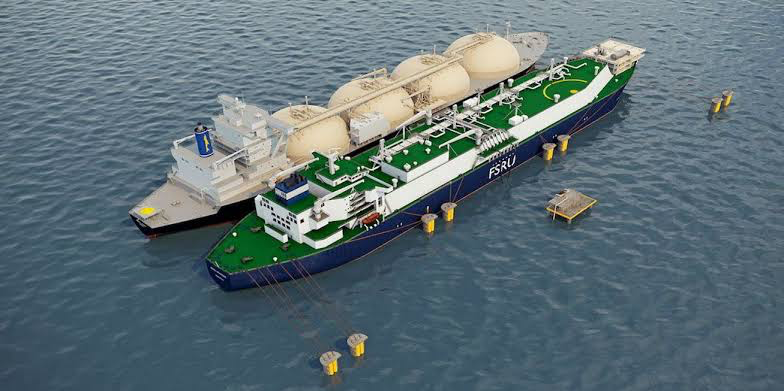South Africa is set to join the global shift towards cleaner energy sources with the development of its first liquefied natural gas (LNG) terminal at the Port of Richards Bay. The state-owned Transnet National Ports Authority announced on Wednesday that it has selected a consortium led by Dutch company Vopak as the preferred bidder to build and operate the terminal for 25 years.
The terminal, which is expected to start operations in 2027, will enable South Africa to import LNG from various sources and distribute it to power plants, industries, and households across the country. This will help reduce the country’s reliance on coal-fired electricity, which accounts for more than 80% of its energy mix and is a major source of greenhouse gas emissions and air pollution.
South Africa has been facing its worst energy crisis on record, with frequent power cuts and rising electricity tariffs. The government has pledged to increase the share of renewable energy and gas in its energy mix to 40% by 2030, as part of its commitment to the Paris Agreement on climate change. LNG is seen as a key transition fuel that can provide reliable and flexible power generation while lowering carbon emissions and costs.
The Vopak consortium, which includes Transnet Pipelines and other local partners, beat three other bidders for the project, which is estimated to cost around R10 billion ($660 million). The consortium will be responsible for the design, financing, construction, operation, and maintenance of the terminal, which will include a floating storage and regasification unit (FSRU) and a jetty with a pipeline connection to the existing gas network.
The terminal will have an initial capacity of 2 million tonnes per year, which can be expanded to 6 million tonnes per year depending on demand. According to Transnet, the terminal will create about 500 direct and indirect jobs during the construction phase and 100 permanent jobs during the operation phase. It will also stimulate the development of the gas industry and related sectors in South Africa, such as petrochemicals, mining, and manufacturing.
The project is part of Transnet’s broader strategy to transform the Port of Richards Bay into a multi-purpose hub that can handle various types of cargo, including LNG, crude oil, refined products, dry bulk, and containers. The port, which is located on the east coast of South Africa, is the largest coal export terminal in the world and a gateway to the Southern African Development Community (SADC) region.
The development of the LNG terminal in South Africa follows similar initiatives in other African countries, such as Ghana, Ivory Coast, Senegal, and Mauritania, which have also embraced LNG as a way to diversify their energy sources and boost their economic growth. According to the International Energy Agency (IEA), Africa’s natural gas demand is expected to grow by 3% per year until 2040, driven by the power sector and industrial uses.
The IEA also projects that Africa’s LNG imports will increase by more than 50% by 2040, as domestic gas production will not be able to keep up with demand. However, the IEA also warns that the development of LNG projects in Africa faces several challenges, such as regulatory uncertainty, financing constraints, infrastructure gaps, and social and environmental impacts.
The Vopak consortium will have to overcome these challenges and secure the final approval from the South African authorities before it can proceed with the construction of the terminal. The consortium will also have to negotiate the supply contracts with the LNG producers and the off-take agreements with the gas customers. The success of the project will depend on the alignment of the interests and expectations of all the stakeholders involved, as well as the competitiveness of LNG in the South African energy market.
The development of the LNG terminal in South Africa is a significant step towards a cleaner and more resilient energy future for the country and the continent. It will also enhance South Africa’s role as a regional energy hub and a key player in the global energy transition.
Source: Reuters



